Abstract
A method is described for the isolation of large numbers of tobacco (Nicotiana tabacum L. cv. Xanthi-nc) mesophyll cell protoplasts under relatively low external osmotic conditions. The procedure utilized 0.2 m sucrose as the primary osmoticum and a mixture of 0.5% macerozyme, 4% cellulase, and 2% polyvinylpyrrolidone, pH 5.4. The viability of resultant protoplasts was confirmed through regeneration of fertile plants. Plating and regeneration studies revealed, however, that qualitative and quantitative modifications in plating and differentiation media were necessary for protoplasts prepared in this manner. Over-all, the procedure was found to be a simplified alternative to those previously described for tobacco protoplast regeneration. In addition, the system should permit studies related to the influence of differing osmoticum levels on a variety of cell functions.
Full text
PDF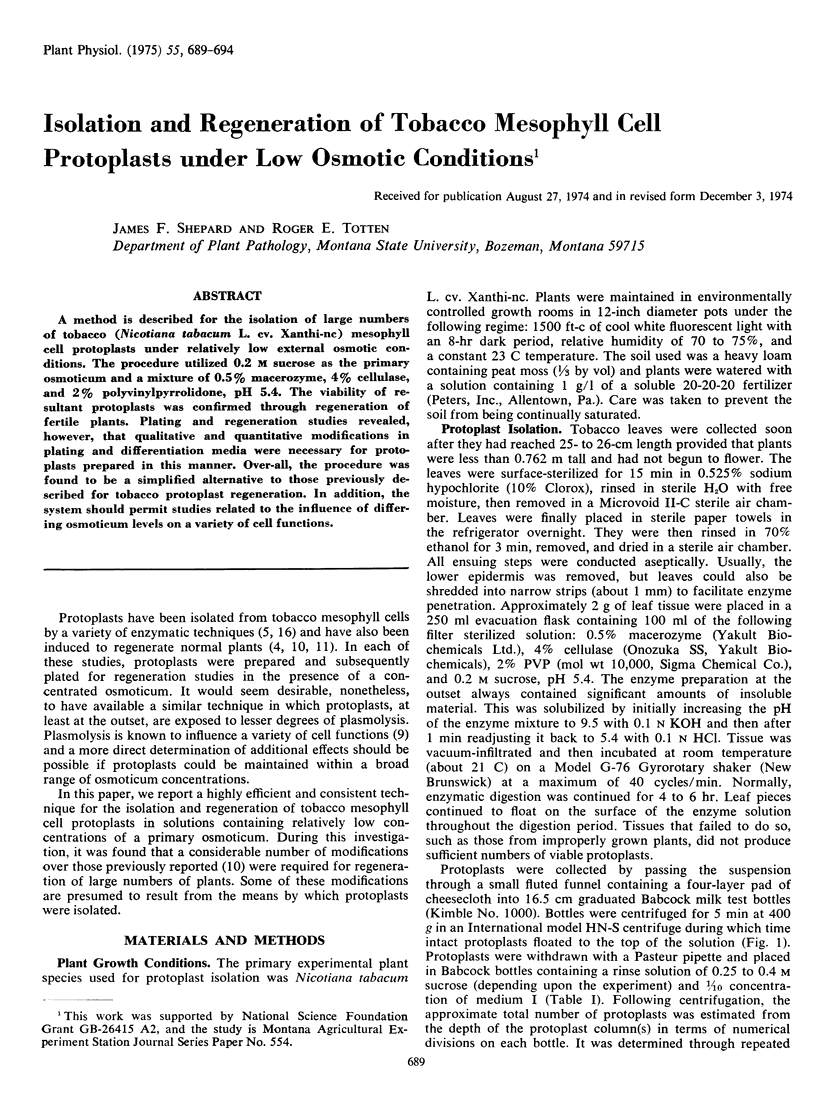
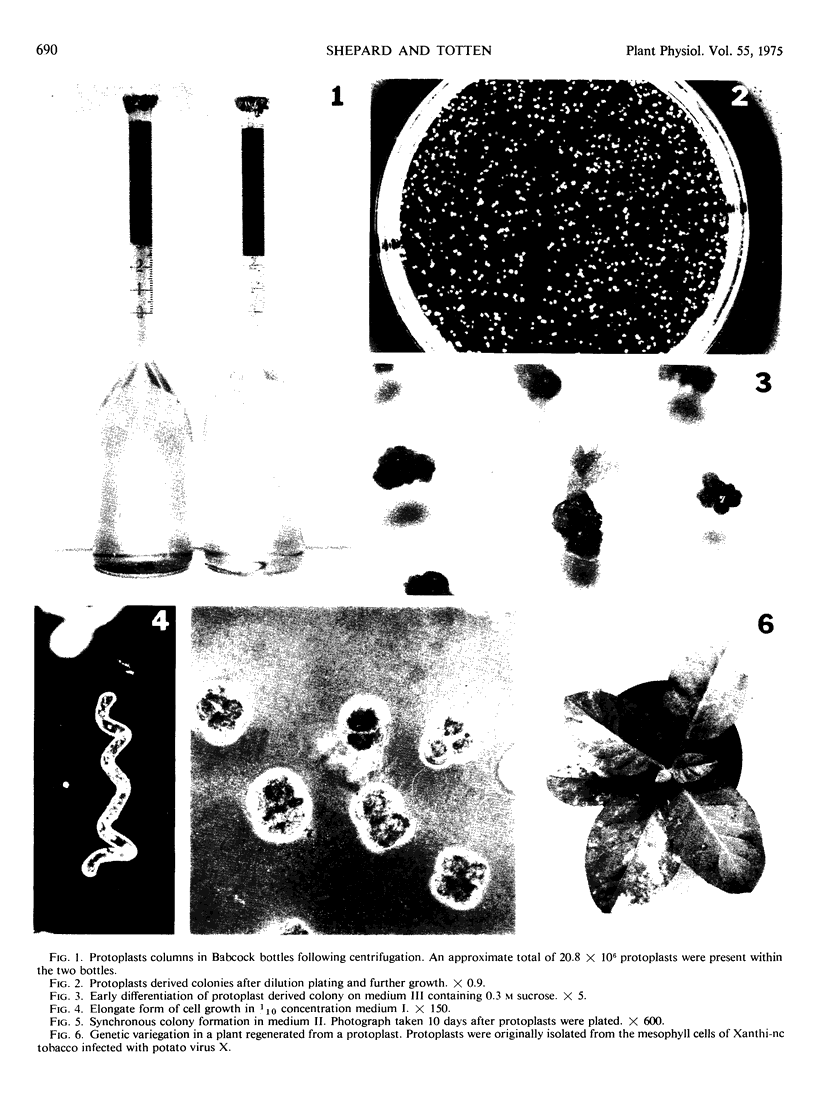
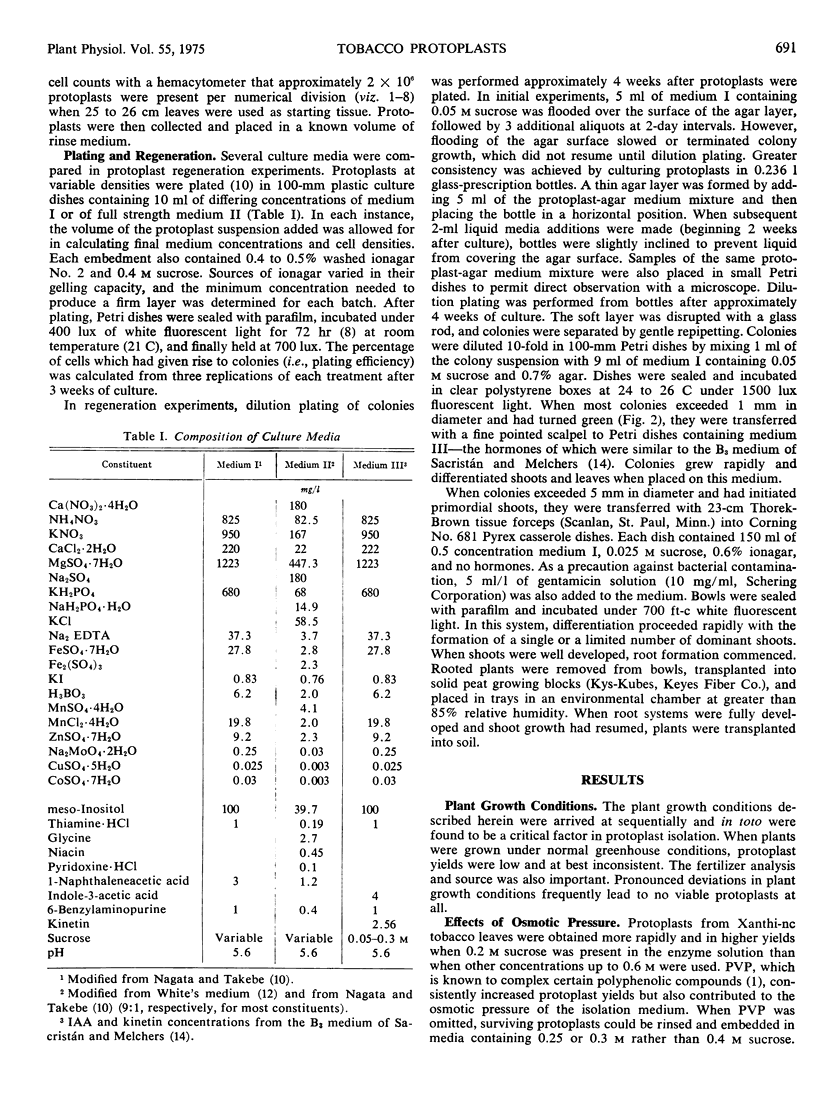
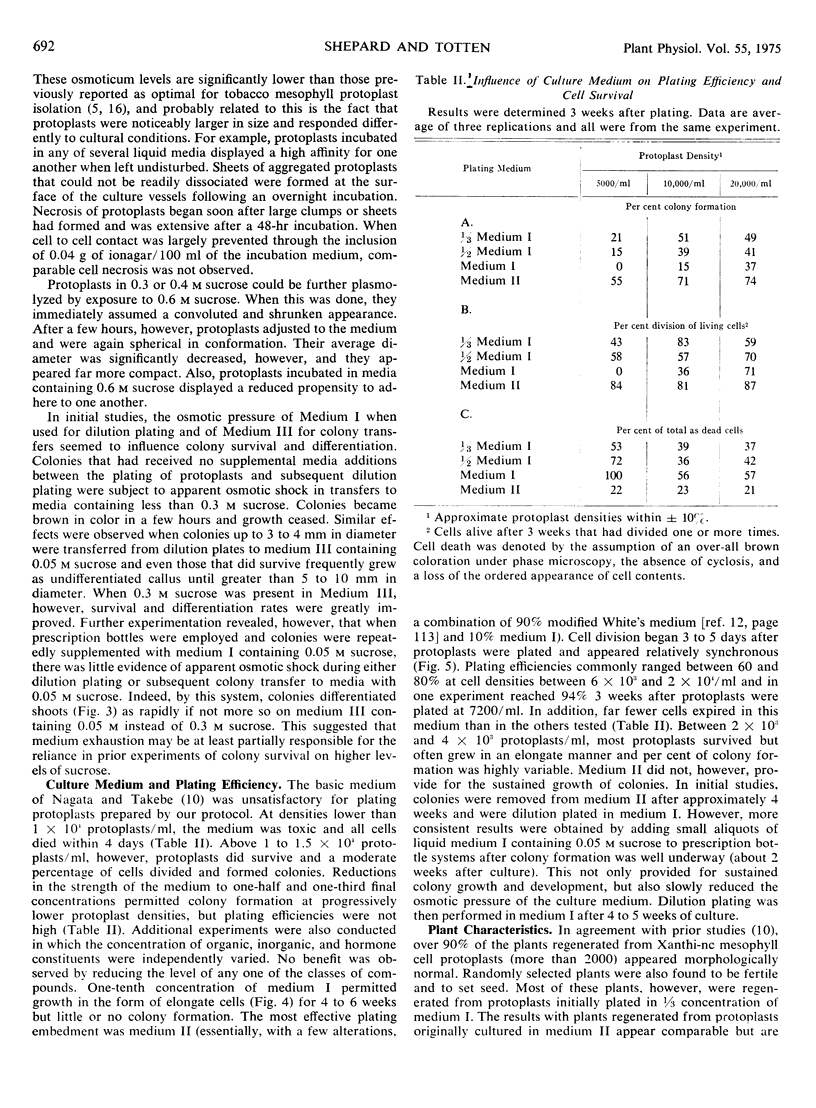
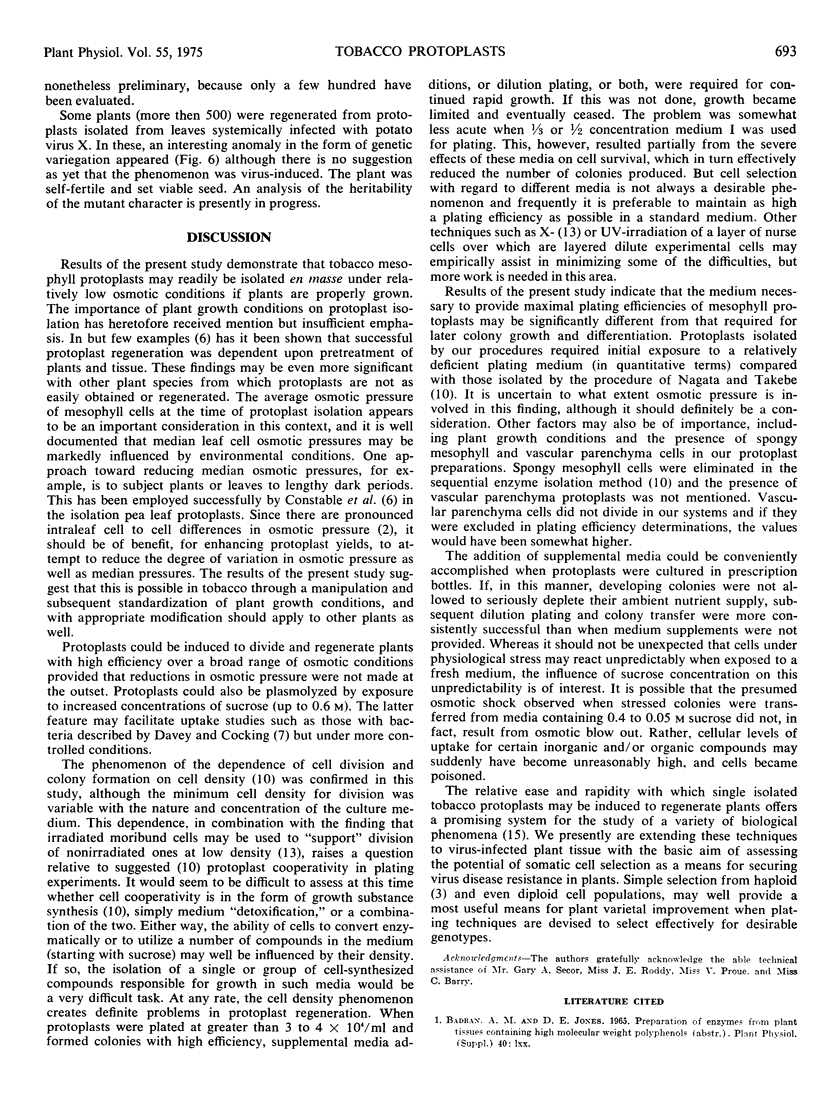
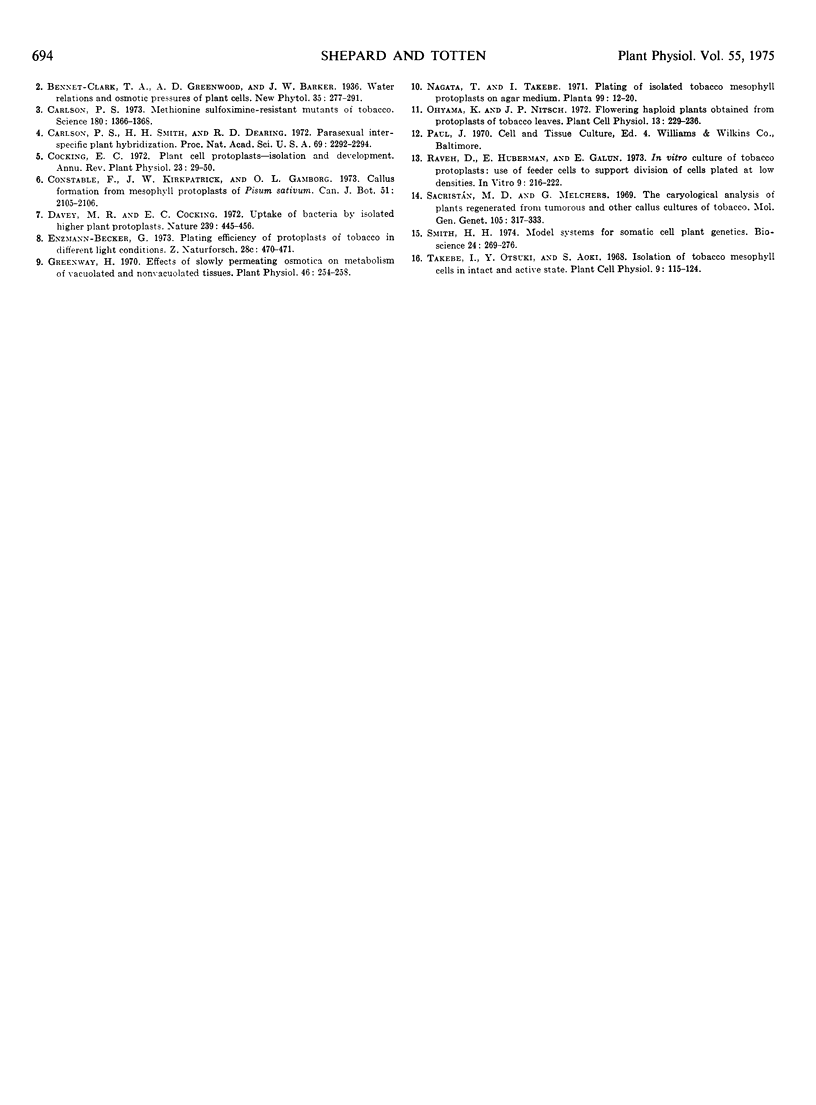
Images in this article
Selected References
These references are in PubMed. This may not be the complete list of references from this article.
- Carlson P. S. Methionine sulfoximine--resistant mutants of tobacco. Science. 1973 Jun 29;180(4093):1366–1368. doi: 10.1126/science.180.4093.1366. [DOI] [PubMed] [Google Scholar]
- Carlson P. S., Smith H. H., Dearing R. D. Parasexual interspecific plant hybridization. Proc Natl Acad Sci U S A. 1972 Aug;69(8):2292–2294. doi: 10.1073/pnas.69.8.2292. [DOI] [PMC free article] [PubMed] [Google Scholar]
- Greenway H. Effects of slowly permeating osmotica on metabolism of vacuolated and nonvacuolated tissues. Plant Physiol. 1970 Aug;46(2):254–258. doi: 10.1104/pp.46.2.254. [DOI] [PMC free article] [PubMed] [Google Scholar]
- Raveh D., Huberman E., Galun E. In vitro culture of tobacco protoplasts: use of feeder techniques to support division of cells plated at low densities. In Vitro. 1973 Nov-Dec;9(3):216–222. doi: 10.1007/BF02618439. [DOI] [PubMed] [Google Scholar]
- Sacristán M. D., Melchers G. The caryological analysis of plants regenerated from tumorous and other callus cultures of tobacco. Mol Gen Genet. 1969;105(4):317–333. doi: 10.1007/BF00277587. [DOI] [PubMed] [Google Scholar]








